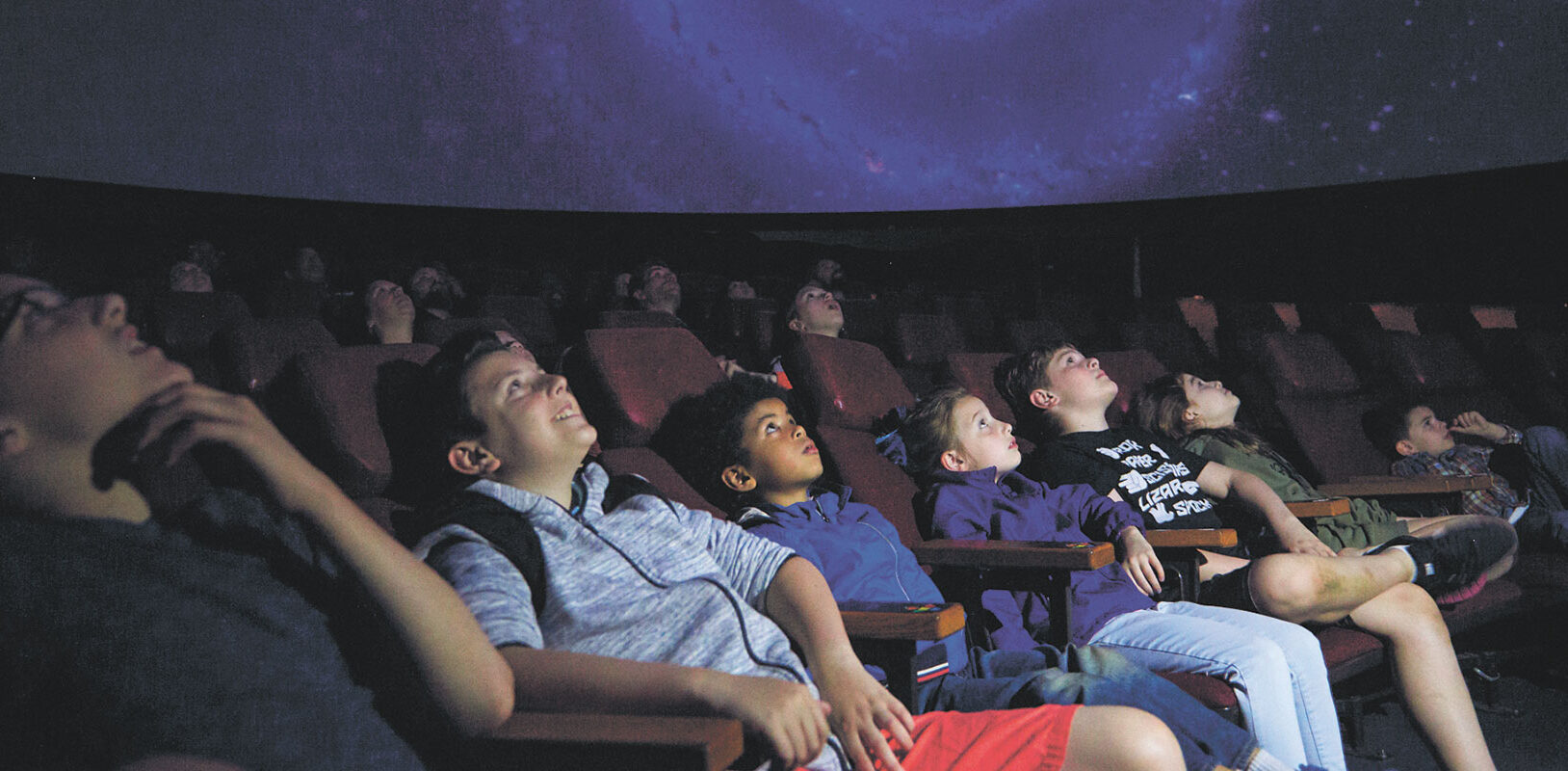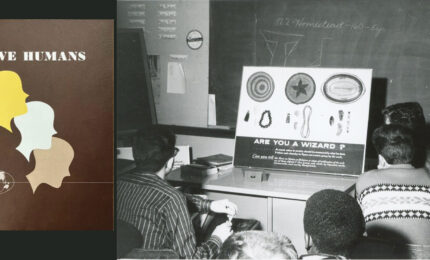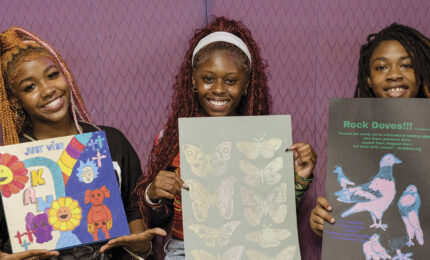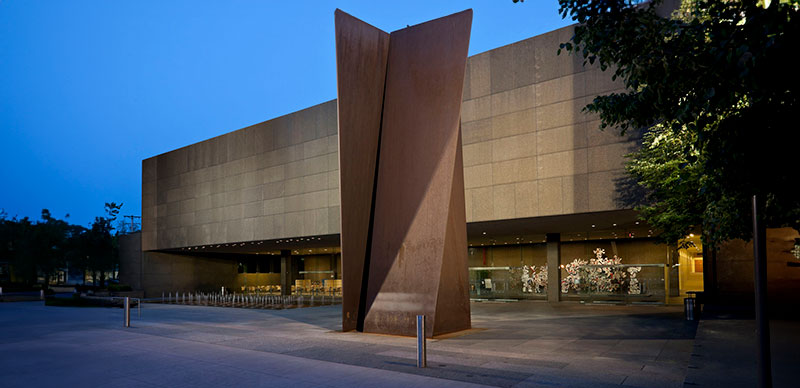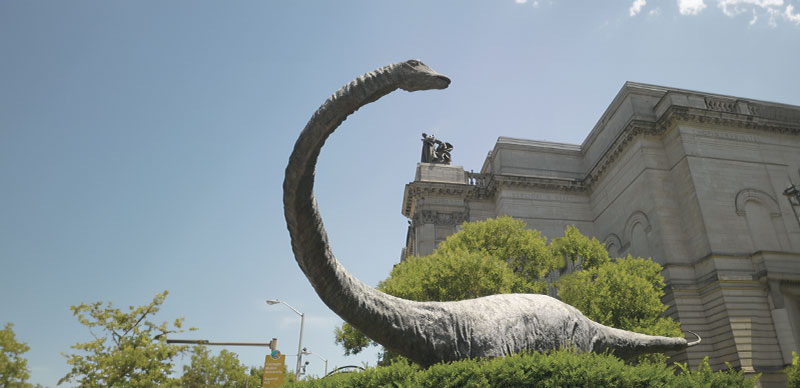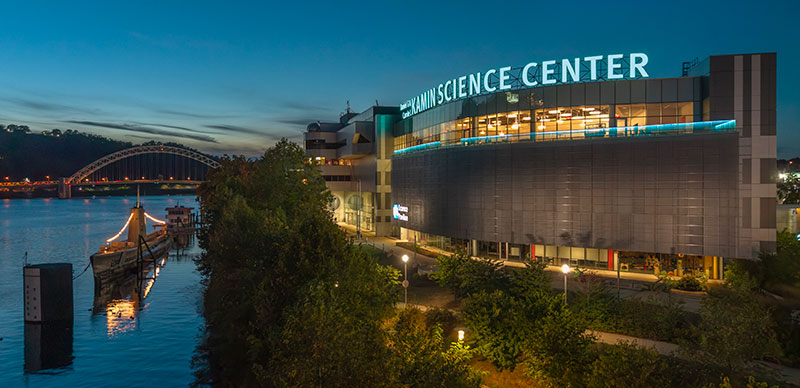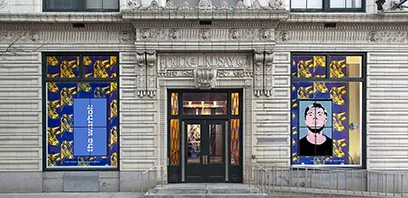Giving Forward
Who:
Seth Vargo and TJ Watson
What They support:
Carnegie Science Center
Why it matters:
“To me, it’s about the spark. It’s about having someone look at something and wonder, how does that work? To enable curiosity is the most important part.” –TJ Watson
A s a curious, science-oriented fifth grader, Seth Vargo took a transformative school field trip in which he moved between worlds.
He’d never been to a large city, and the 2 1/2-hour bus journey from Vargo’s home in Windber, Pennsylvania—an economically challenged community where 14 percent of children live in poverty—introduced him to the glittering spectacle of downtown Pittsburgh. Then, once the bus reached the North Shore, he and his classmates filed into Carnegie Science Center where they discovered outer space.
“It was a really great interactive experience at the Science Center,” Vargo recalls. “To get hands-on with science, technology, and innovation that you would normally only see at a very expensive high-end school where you could afford your own planetarium or IMAX theater.”
Vargo remembers the trip fondly, and said it was one of the inspirations that led him to a technology career, currently as a principal software engineer at Google. And now, he’s returning the favor by becoming a donor to the Science Center.
Vargo and his husband, TJ Watson, have financially supported renovations at the Buhl Planetarium and the development of MARS: The Next Giant Leap®, unveiled in 2022, as well as donated robotics equipment. Watson, who is a staff engineer at Aurora, an autonomous-vehicle tech company in the Strip District, says he enjoys supporting exhibitions that awaken people’s curiosity about space and technology.
“To me, it’s about the spark,” says Watson. “It’s about having someone look at something and wonder, how does that work? To enable curiosity is the most important part.”
For Vargo, that spark came via the Buhl Planetarium. Outer space has always been an interest of his, but as a child he was also just as fascinated by the projection technology that produced the spectacular shows of the night sky. He watched the projectionist operate “what looked like a spaceship or futuristic object,” Vargo recalls, wondering how it was managing to recreate the stars and galaxies on the domed screen surrounding them. It was an immersive experience unlike anything he’d ever seen.
Making opportunities like this accessible for everyone, especially marginalized communities, is essential to their philanthropy, Vargo says. Growing up so far away from Pittsburgh and without the financial means to take regular trips into the city, Vargo’s visits to the Science Center were few, but they were precious and impactful.
“I didn’t come from a privileged economic household, and the opportunities and the education provided by the Science Center got me into a position where I am successful and I have the means and opportunity to give back,” Vargo says. “It seems really important.”
The couple’s love of the Science Center was evident the day of their October 2023 wedding: The ceremony took place in the Buhl Planetarium. Guests were treated to a theatrical recreation of the sky from the night they first met, projected on the massive Buhl dome using the upgraded technology they helped fund, followed by a rapid slideshow of every night sky since the day they’d met and ending with the one that very night in Pittsburgh. Their officiant donned a space suit, and a robot served as their ring bearer. Afterward, the guests adjourned to the Mars exhibition outside, providing a sensation of blasting off to another planet.
“We got married on Earth and now we’re off to our honeymoon on Mars,” Vargo notes.
Like their wedding, the Science Center’s regular daily programming also pushes boundaries, providing new experiences for kids and adults to discover with each visit.
“The Science Center has done a lot of innovation,” Vargo adds. “I think the director and the staff there aren’t afraid to push the bounds of what is possible.”
